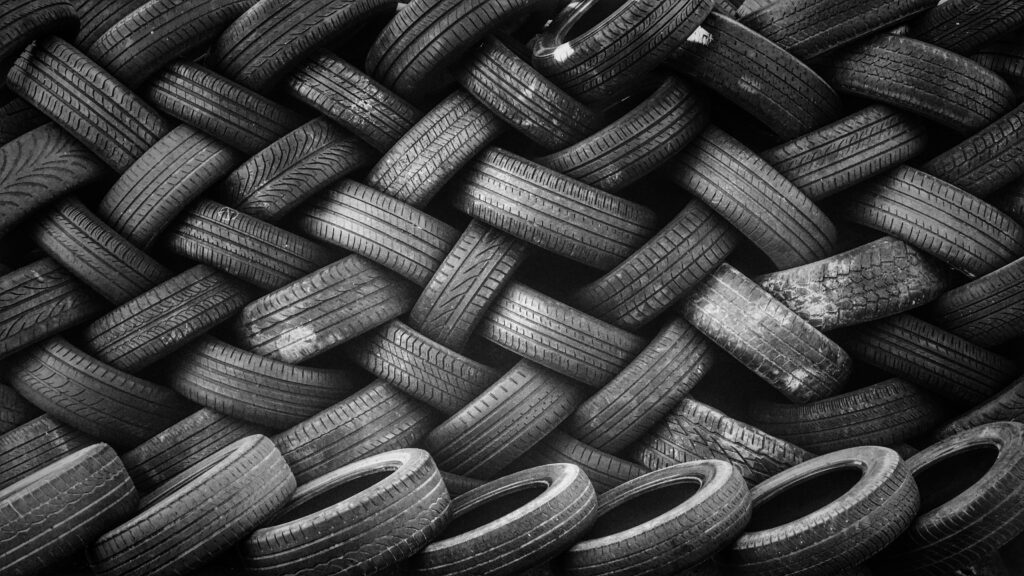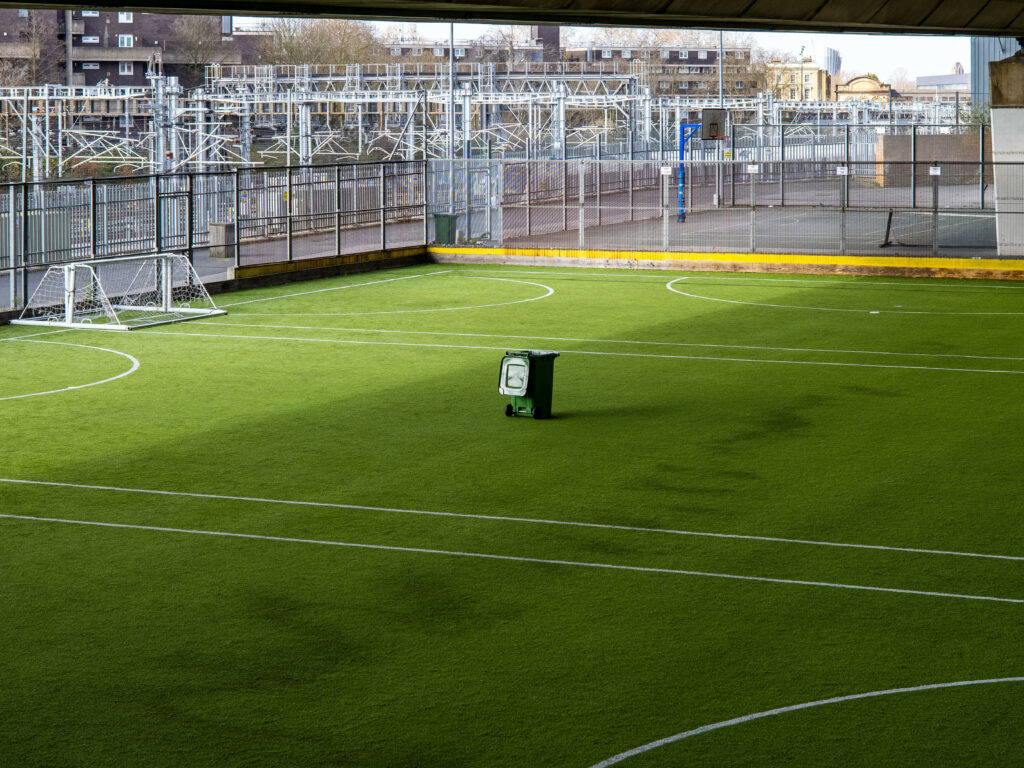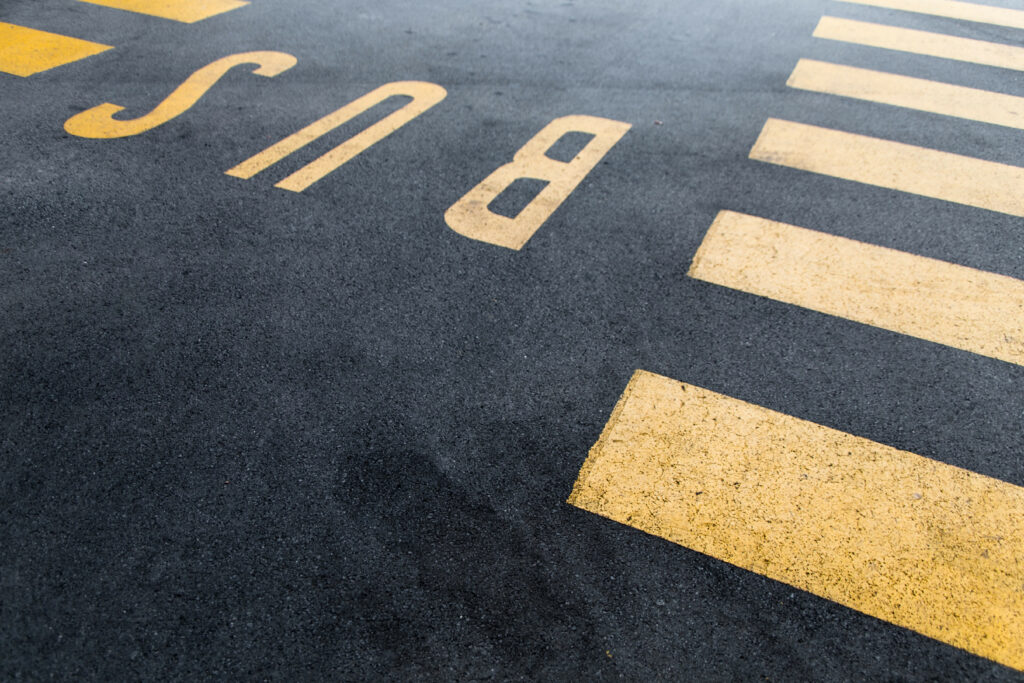
Some eight years ago Zero Waste Alliance Ireland researched what should be done with end-of-life tyres, and we provided to the Irish government a detailed argument for adding the rubber to the asphalt coating used in road surfacing throughout the country. Research undertaken in other countries has shown that a small amount of rubber improves the quality of the asphalt, making it less resistant to cracking, and providing more resistance to skidding¹. ZWAI gave examples in our submission of how easily tyres could be separated into their valuable components of rubber, steel and nylon fibre; and we showed that this was already being done in at least one recycling plant in Germany. Alas, our suggestions were ignored by the government in Ireland, as the waste industry lobby group “Repak” advised that the best thing to do with end-of-life tyres was to use them as a co-fuel in cement production plants.
Only a very small proportion of end-of-life tyres in Ireland are recycled. In Europe, the debate has just now taken a new turn, with the European Recycling Industries’ Confederation (EuRIC) accusing the European Commission of going against its own circular economy agenda by proposing draft legislation that would essentially prohibit the addition of rubber granules made from recycled tyres to AstroTurf sport pitches. EuRIC has alleged that more than 50 million waste tyres could end up being indefinitely stockpiled in Europe or exported outside the EU for dumping under the proposed legislation². Under the plans, expected to be tabled next year and which are still subject to change, the EU would reclassify rubber crumb as an intentionally added form of “microplastics”, which would essentially prohibit their use in artificial sports pitches. Across Europe, rubber infill has been added to some 32,000 artificial sports pitches to replicate the feel of naturally grown grass, which is still the preferred medium in Ireland on which we play hurling and football.

A proposed update of the REACH legislation, which aims to substitute toxic chemicals for safer ones, would (according to EuRIC) ban this use of recycled rubber, if it is classified as a “microplastic”. While tackling microplastic pollution is rightly seen as a priority, ruling out this option for end-of-life tyre recycling without developing alternatives for disposal would lead to more environmental degradation, argues EuRIC. According to the European Chemicals Agency (ECHA), each artificial sports pitch using rubber as a material leaks some 500 kg of microplastic each year into the surrounding environment; and an ECHA impact assessment estimated that 16 kilotonnes of microplastics are released from artificial sports grounds per year. EuRIC has questioned these figures, arguing that only 20 to 50 kilograms per year ends up in the environment; and, if risk management measures are put in place, “then you really bring that to almost zero,” states EuRIC. These mitigation measures, proposed by EuRIC, include the installation of boot cleaning brushes which can shake loose any rubber granules, so as to ensure that they remain in the area of the sports pitch, grates designed to capture rubber granules at the entrance and exit of pitches, and the addition of microfilters to rainwater drains on the side of pitches in order to prevent granules from entering the sewer system.
EuRIC’s position is supported by the European Tyre & Rubber Manufacturers’ Association (ETRMA), who similarly warned that a ban on using rubber as a material for artificial sports pitches would likely lead to “the return of stockpiles in Europe, massive exports outside of Europe, and increases in the cost to collect, treat and co-incinerate tyres, significantly affecting the goals of the circular economy”. Whilst maintaining its opposition to the ban, ETRMA also asked the EU to support the development of alternative markets for rubber granules. While we don’t know if ETRMA is advocating the addition of rubber to asphalt road surfacing, it is good news that this trade association is actually proposing alternative uses for the rubber extracted from end of life tires, same as ZWAI did eight years ago.

There is also a further angle to this interesting debate, as a number of environmental NGOs have warned that failure by the EU to designate rubber crumb derived from end-of-life tyres as a banned microplastic will lead to significant environmental harm. Both Seas at Risk, an NGO dedicated to marine protection, and the Rethink Plastic Alliance, a group advocating a shift away from plastic use, expressed support for the draft REACH measures. Seas At Risk told EURACTIV that the infill materials covered by the ban usually contain toxic additives, such as heavy metals and volatile organic compounds. The complexity of these synthetic materials reduces their biodegradability, making them more likely to persist in the local environment – “As the number of artificial turf pitches is growing globally, such a big source of microplastic pollution cannot be overlooked”. On the other hand, a study conducted by European Chemicals Agency’s Risk Assessment Committee found AstroTurf sports pitches with rubber infill posed no health risk to players, which was in line with the findings of independent studies commissioned by industry. However, if consumed, they are harmful to wildlife. While originally scheduled to be published before the end of 2022, the REACH review has been postponed to 2023, following very forceful lobbying by the chemicals industry, supported by the centre-right EPP group in the European Parliament. When the REACH review is open by the European Commission for public consultation, as it surely will, Zero Waste Alliance Ireland looks forward to the opportunity to make a submission. We will take into account new information, recent research, and will examine and propose environmentally acceptable ways of recycling end-of-life tyres so that their valuable components may be recovered and reused, and not burned, as is the case in Ireland at present.
Jack O’ Sullivan has over 40 years of experience in the field and founded his own company in 1981 called “Environmental Management Services Ltd.” (EMS). It is one of the first environmental consultancies to begin operating in Ireland, and has built up a wealth of experience in a wide range of fields. Check him out on LinkedIn here.
References
- Submission by Zero Waste Alliance Ireland to the Department of the Environment, Community and Local Government on Tyres and Waste Tyres, 30 January 2014.
- Euractiv: Burning or recycling? EU weighs options on used tyres.
